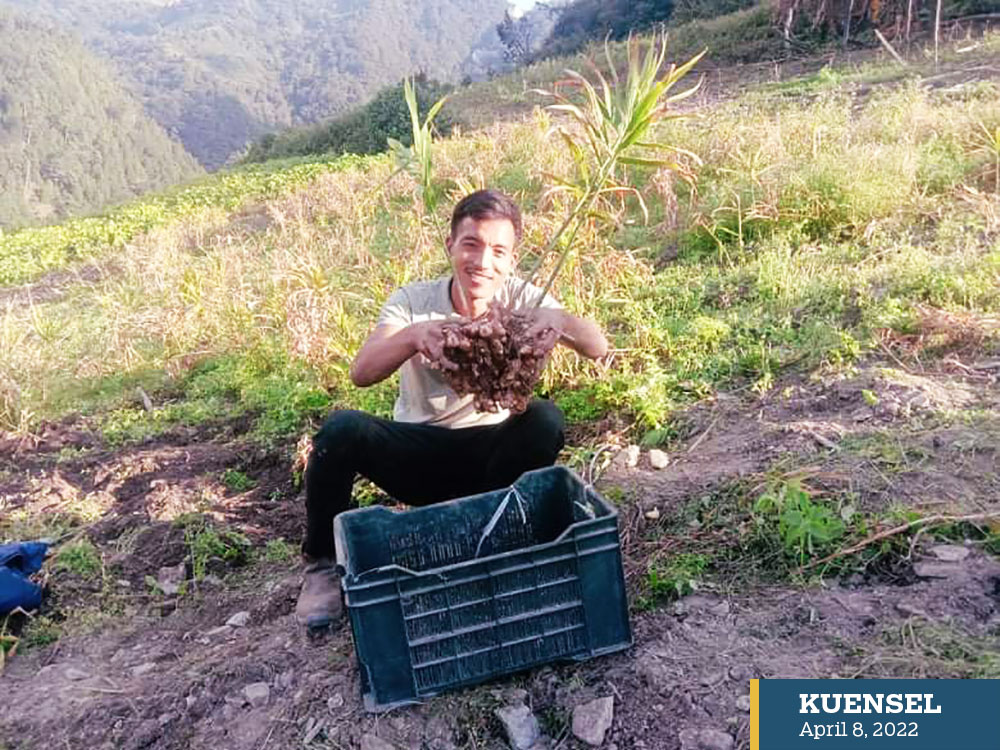Thinley Namgay
Pema Tobgay, 27, is setting an example in Gothung village under Udzorong, Trashigang.
Worried about the increasing fallowing of land in his village, Pema chose to be an educated farmer in 2019. He quit being a tourist guide job.
There are about 15 households in Gothung.
“While in the capital, I noticed that the prices of dairy products increase every year. So I decided to start a dairy farm,” Pema said.
Then, in 2020, he invested in vegetable cultivation, horticulture, and apiculture.
With a moderate climate, vegetables such as potato, broccoli, cabbage, pea, beans, and ginger grow well in Gothung.
He also has two milking cows that give no less than 15 litres of milk a day. Pema focuses on growing maize and fodder plants to ensure fodder for the cattle.
Pema manages bees in four wooden boxes; honey production is underway. This is, however, his pilot project.
When the vegetables are ready, he loads them on his truck and heads to the market—as far as Thimphu. With the coming of the road in Gothung, farming has become so much easier.
The Covid-19 pandemic and the restrictions came as a blow to Pema’s business. But he had markets in Kanglung and Trashigang and vegetable demands to meet.
Pema said that as an educated farmer, his aim was to move forward by adopting new farming methods; growing different cash crops and raising livestock; improving soil fertility by rotating crops; using cover crops; and tilling the soil.
He said that a single source of income would be challenging for farmers. “We must engage in more activities.”
According to Pema, the land and capital are paramount for farmers. “The advantage of being a farmer is that we can produce food, and we don’t have to worry like those living in the cities.”
He said there is support from the government and agriculture could provide jobs to thousands of young people. “That way, they will be engaged in creating jobs for others.”


